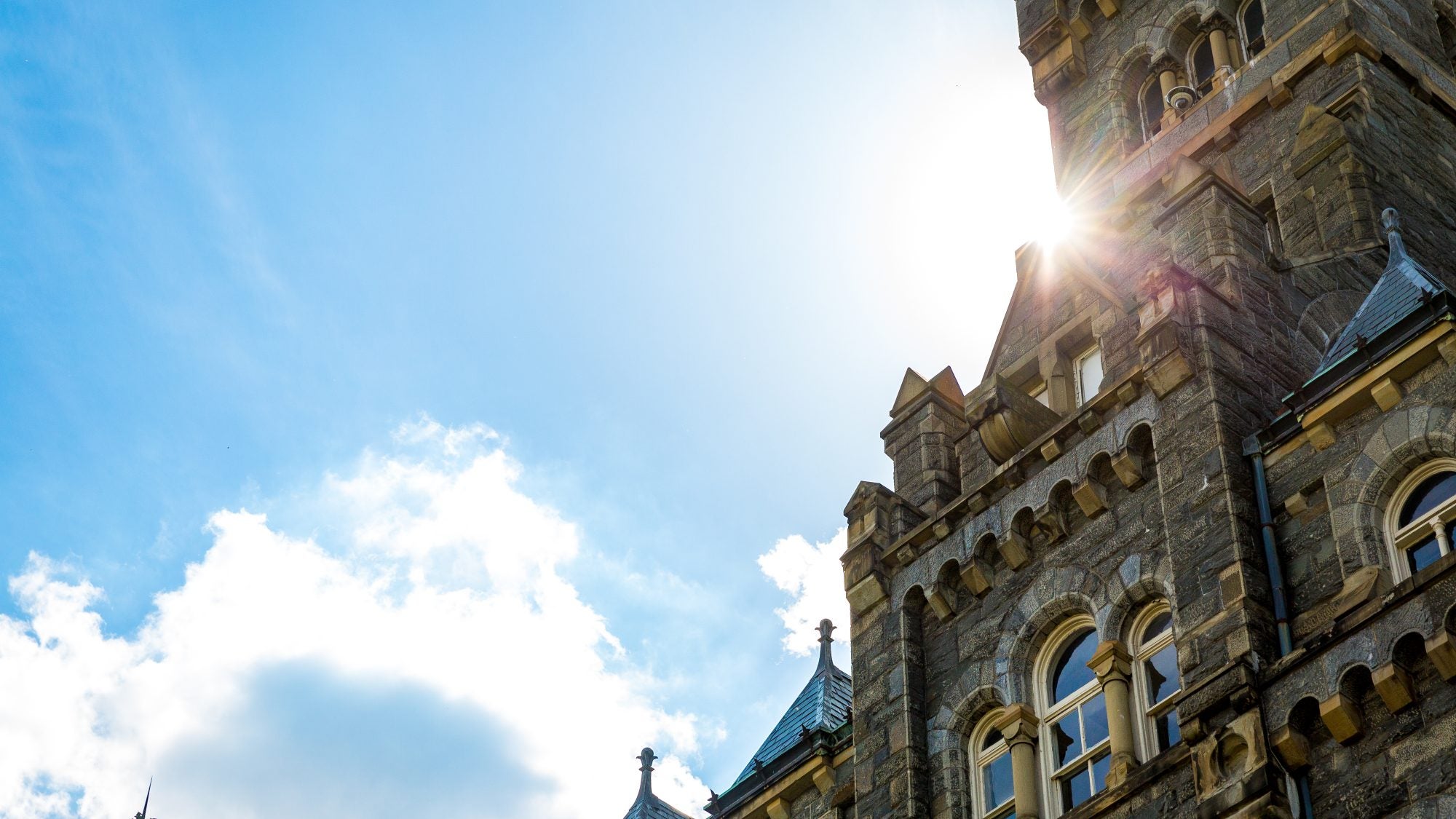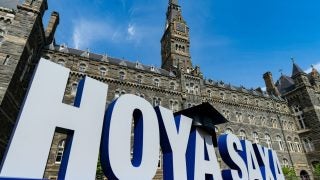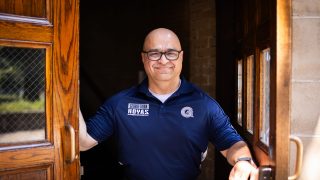As students arrive at Georgetown this fall, the Class of 2028 will include the highest percentage of Pell-eligible students in more than a decade.
For the 2024-2025 academic year, Pell-eligible students comprise approximately 15% of the undergraduate Class of 2028. The Department of Education awards Pell Grants to undergraduate students who demonstrate significant financial need.
Georgetown has worked steadily in recent years to attract more low-income students to the university and has a 92% graduation rate for Pell grant recipients, one of the highest in the country. This past year, the university also began considering students’ Pell eligibility as part of its holistic and comprehensive admissions process.
“Every student at Georgetown, all class discussions, all learning are advantaged by a student body with diverse life experiences,” said Georgetown Provost Robert M. Groves, a first-generation graduate. “Pell students are part of our multipronged approach to building a socioeconomically diverse student community and fostering an environment of dialogue among diverse perspectives.”
Reaching Low-Income Students
Georgetown is committed to meeting the full financial need of every admitted, eligible undergraduate student.
Reaching more low-income students and removing financial barriers is critical to Georgetown’s mission, said Charlie Deacon (C’64, G’69), the university’s dean of admissions and a first-generation college graduate.
“We want to make sure Georgetown is a place where all students can thrive,” Deacon said.
In addition to Pell Grants, Georgetown offers a comprehensive financial aid package, including grants, scholarships, school employment and educational loans.
In the past academic year, Georgetown provided $265 million in financial aid to support undergraduate and graduate students. Approximately 50% of undergraduate students generally receive financial aid, and 35% receive institutional aid from Georgetown, including grants or scholarships.
For the upcoming academic year, Georgetown has increased its financial aid budget to $285 million, the largest-ever commitment to financial aid in the university’s history. This commitment will continue to help expand the enrollment of Pell-eligible students.
Continued On-Campus Support
Georgetown provides several programs and resources to attract, enroll and support students of all backgrounds throughout their undergraduate education.
One of Georgetown’s longest-running programs for first-generation college students is the Georgetown Community Scholars Program (CSP), established in 1968. CSP offers a five-week summer pre-orientation to ease the transition into college. The program also supports students throughout their Georgetown careers with mentoring, personal counseling, academic advising, workshops and study groups. CSP boasts a 93% graduation rate.
Two decades after its inception, the Georgetown Scholars Program (GSP) continues to offer wraparound support for first-generation college enrollees and low-income students. From advising and mentorship by staff and alumni to funding help for essential items and services, GSP supports students through a range of resources and a built-in community. GSP has a 94% graduation rate — 68 percentage points higher than the national average of 26% for first-generation college students.
Georgetown’s First Fellows Program also offers resources, academic guidance and financial support for first-generation college students in the College of Arts & Sciences.
Georgetown’s impact also extends to K-12, providing support to help middle and high school students excel academically and access higher education. Georgetown’s Pre-College Programs offer comprehensive and intensive support to District of Columbia public middle and high school students to empower them to graduate from high school and succeed in college.
“At Georgetown, we are focused on caring for the whole person, ensuring that every student can thrive and be successful at Georgetown,” said Charlene Brown-McKenzie (C’95, S’23), director of the Center for Multicultural Equity & Access. “We will continue to work toward providing resources, opportunities and programs that foster students’ success in and out of the classroom and an equitable, inclusive and loving environment for students of all backgrounds.”


